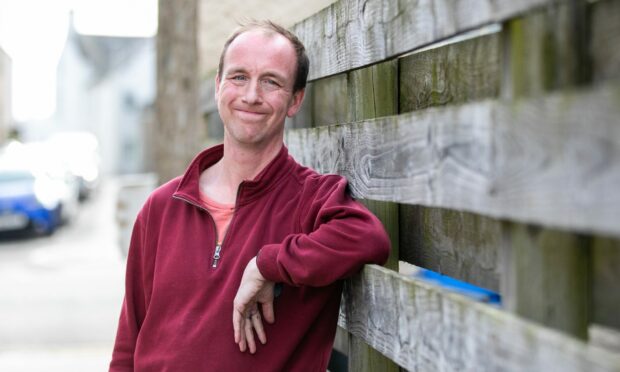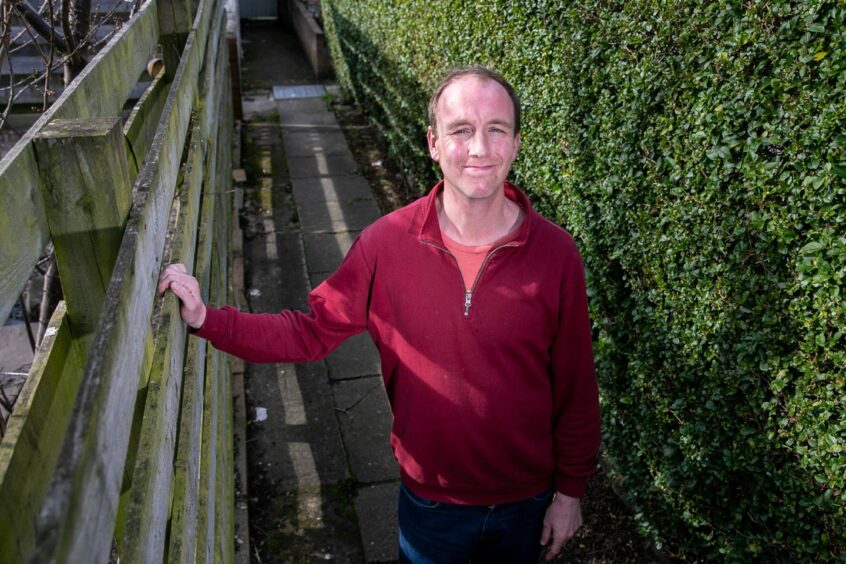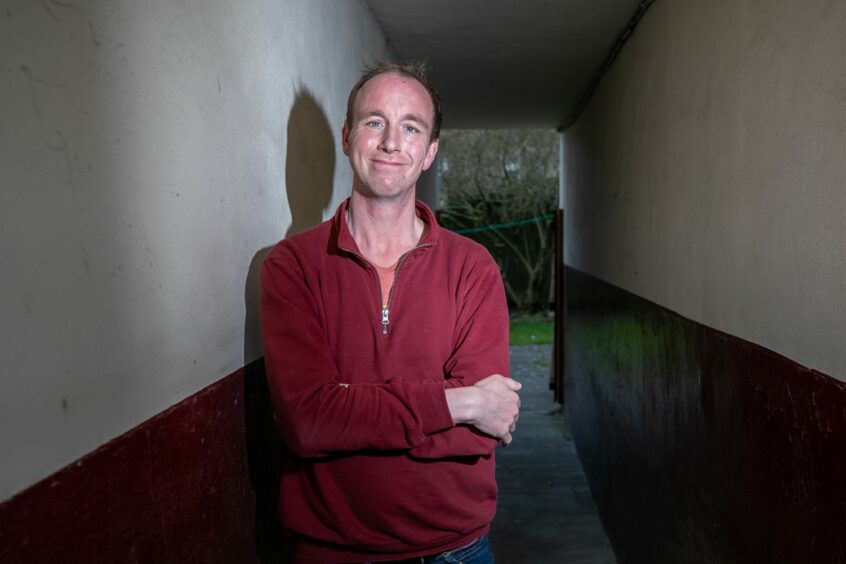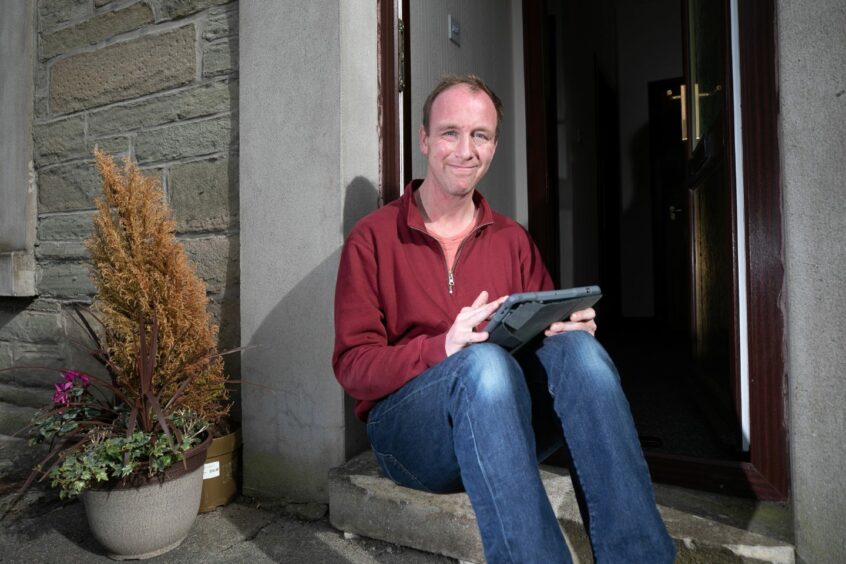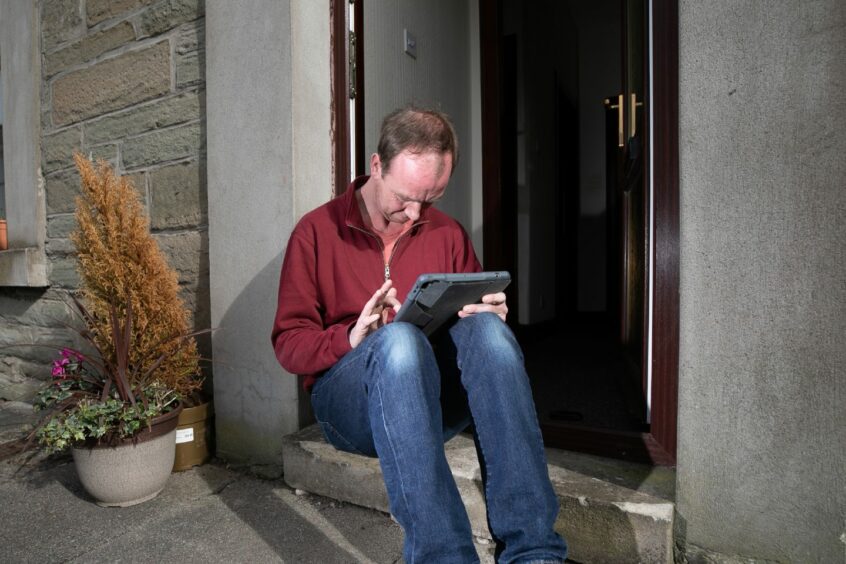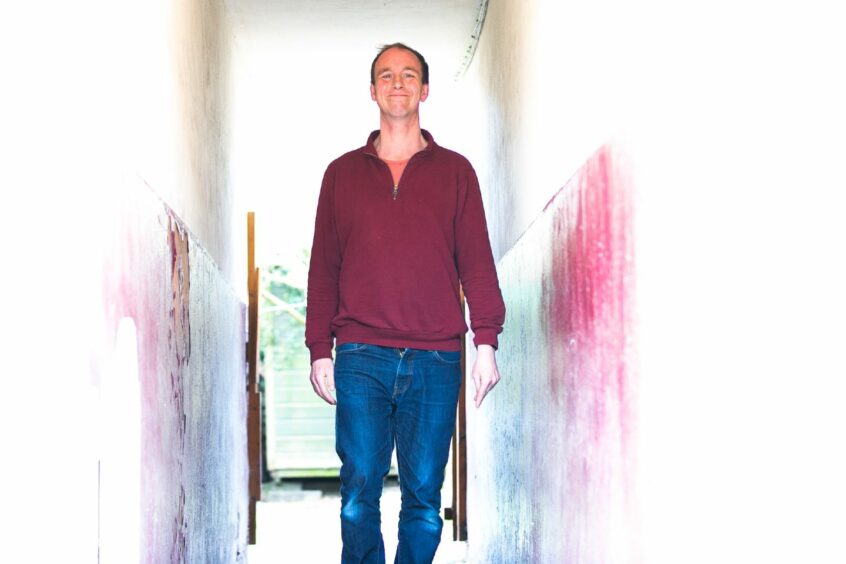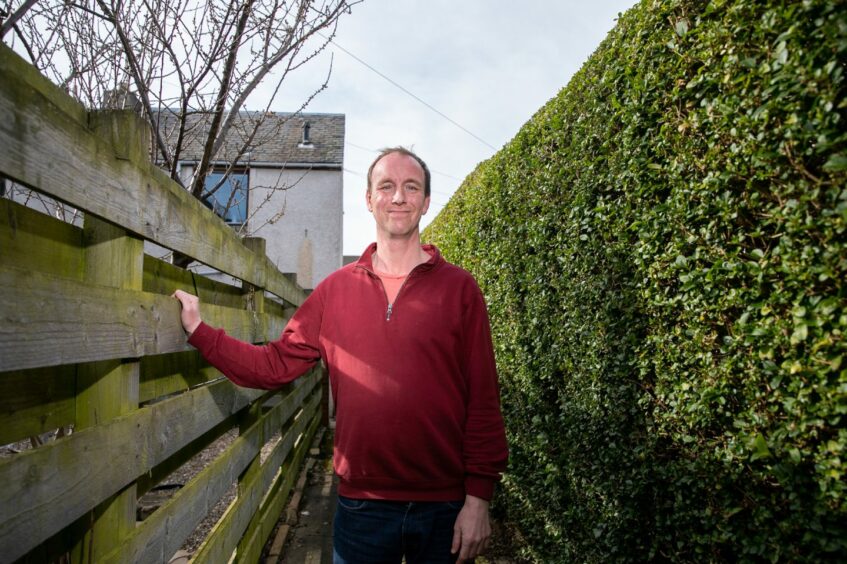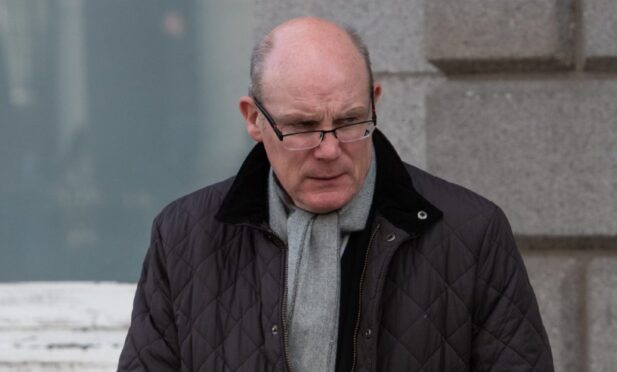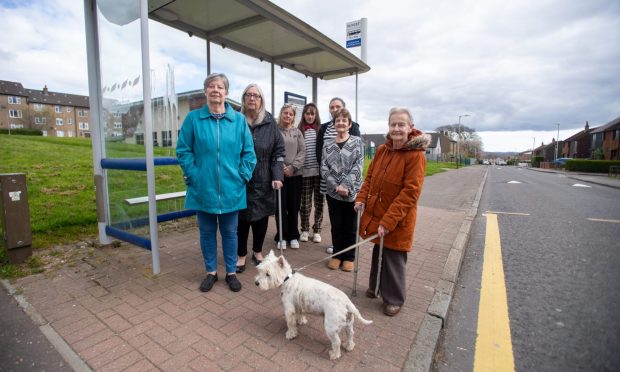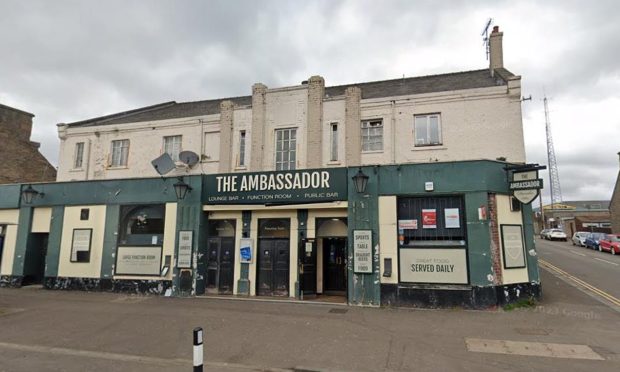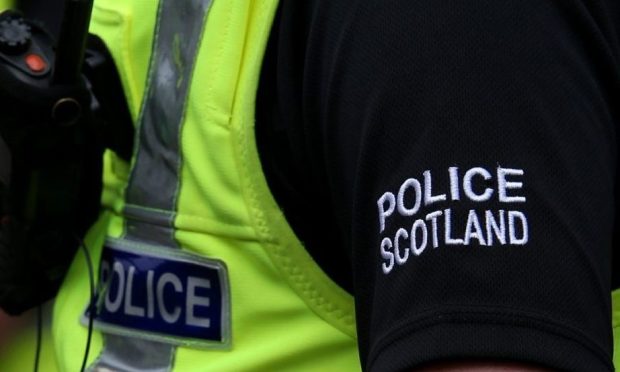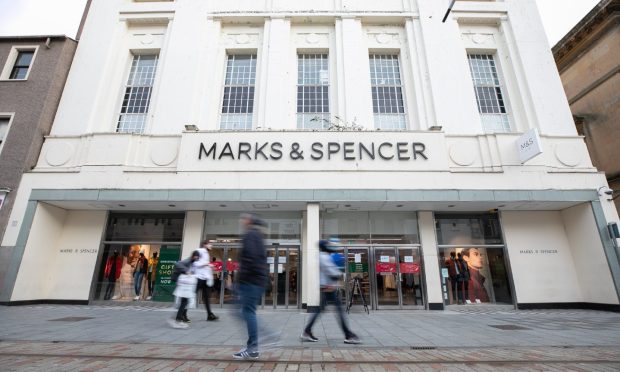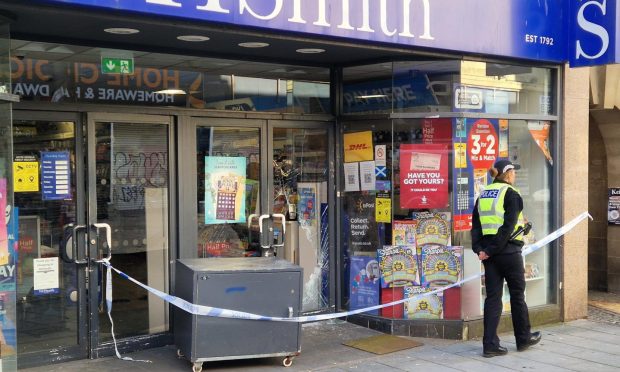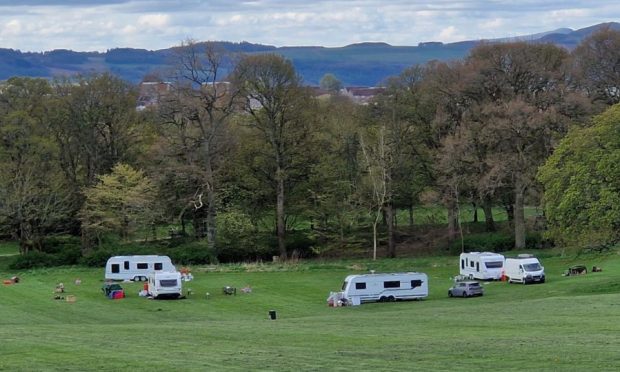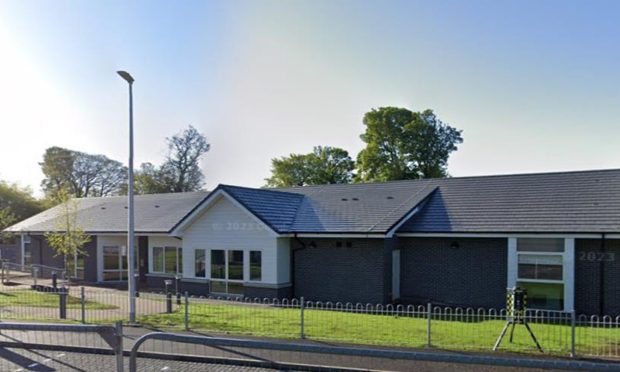Broughty Ferry man Ali Davidson knows all about the importance of people with disabilities being involved in decisions about their own lives.
The 39-year-old, who has the developmental co-ordination disorder dyspraxia, works for disability and autism organisation Advocating Together.
The organisation speaks up for people with disabilities and autism.
Raising awareness
As the Scotland-wide National Involvement Network (NIN) launches a new membership scheme to empower people with disabilities to be more vocal, however, he thinks government and decision makers need to do more to raise general awareness about disability issues.
“I think it’s very important that disabled people are involved and vocal in decisions about their own lives,” he says.
“I think everybody has the right to live their life safely.
“I don’t think anyone should tell anyone they can’t do something.
“I think it’s all about encouragement and getting people out their comfort zone if they feel they want to.
“I think in life we all just get used to doing the same old stuff.
“It’s sometimes good to get pushed out your comfort zone if you feel you want to.
“One of the key things to help raise awareness of issues facing disabled people is education.
“I think there’s still a lot of people who don’t understand disabilities.
“I think it’s about maybe getting the word out. People who have disabilities are just the same.
“It might take them a bit longer to do something but they are still human beings. They still deserve the same respect and dignity.”
Growing up with dyspraxia
Born in Dundee, Ali went to the Lochee Assessment Unit as a young child then to Fintry and Forthill primary schools for a couple of years.
At the age of 12, he was diagnosed with dyspraxia – a condition affecting physical co-ordination that causes a child to perform less well than expected in daily activities for their age and to appear to move clumsily.
He went to Monifieth High School because Grove Academy “didn’t have the right kind of care” at that time.
At school, there was a “kind of barrier” sometimes as it “took him longer to get around things”.
However, in general, it didn’t, and still doesn’t, impact a great deal on his day-to-day life.
He’s on the mild spectrum, he explains, so much so that a lot of people wouldn’t know he had the disorder.
“I was heavily supported in all my classes,” he recalls, “and had a teaching assistant with me.
“I was never bullied.
“Obviously I got the odd name and that. But I was able to stand up for myself which is really important nowadays.
“I was heavily supported in school so I was very lucky. I made friends quite quickly with people.”
Career prospects
When Ali left school he went to college.
There he spent three years in special programmes which included cooking and general “day-to-day stuff”.
He then studied hospitality for four years.
“I did that mainly because the other option was gardening and I’m not a gardener!” he laughs.
Ali then spent six months unemployed.
From 2005 to 2010 he worked in the café at TJ Hughes before it closed.
“After that I was unemployed again and did voluntary work with the Deaf Hub,” he says.
“I did that five years.”
A significant move then followed when Ali started work with Advocating Together up the Perth Road. He’s been there ever since and “really enjoys it”.
What is Advocating Together?
Ali explains that Advocating Together is an organisation that speaks up for people with disabilities and autism.
Most of their activities have been online recently due to the ongoing impact of the Covid-19 pandemic.
The people they see are quite vulnerable and might have underlying health issues.
He admits it’s been a “really trying time for everybody”.
For the first lockdown, Ali went to stay with his mum and dad. All his work was being done online via Zoom.
Unfortunately, they found a lot of people who are members didn’t have the right technological facilities or choose not to take part. This meant some of their group was “lost”.
The team found ways to adapt. For example, some people simply enjoyed receiving a phone call if they couldn’t meet up and couldn’t go online.
However, one of the most important things for Ali is his employment gives him “purpose”.
His own experiences of dyspraxia also help drive him to help others.
“I like to think the work Advocating Together does and the work that I and the other staff do makes a difference to someone’s life down the line,” he says.
Advocacy groups
Launched in 1997, and funded by government, Ali explains that he’s part of a relatively small team that holds meetings for people with disabilities.
They go to meetings and hear the views of people with disabilities about what matters to them and then take them into bigger strategic planning groups.
Most of their clients are people with learning disabilities, autism and mental health issues.
They hold regular advocacy groups – all taking place on Zoom because of Covid-19.
“We try and have a guest speaker to give a talk about something that’s important to us,” he adds.
“We had somebody in recently about the Census because people didn’t know about that and what was going to happen.
“We do a thing called Happy and Sad faces. If someone is feeling down and that – they turn their face thing to sad and tell us why.
“It’s a bit like giving people a bit of support if they need it.”
The reality is, however, that some people, including Ali, just don’t class themselves as disabled.
“For me personally, I don’t like the world disabled,” he says.
“I find it quite off-putting.
“I would say I have additional needs. That’s how I would class myself.
“It might take me a bit longer to do something but I will get it done. I might need a lot more support.
“But I suppose everyone has opinions on that as well.”
Ups and downs of mental health
Ali admits that when it comes to mental health he can have his ups and downs.
He was in Strathmartine Hospital for a while because he “wasn’t coping”.
“’I’m better now,” he says.
“I think you just have to take a deep breath sometimes.”
His mum and dad live not too far from him.
He has support for his mental health and medication.
He lives independently and staff check that he’s ok “which is lovely”, he adds.
However, other strategies work too. For example, he tries not to watch the news because there’s “nothing good happening there”.
He’d much rather read a book, go on his iPad or watch a film.
Support for peer network
Looking at the bigger picture, Ali is supportive of a Scotland-wide peer network which recently launched a new membership scheme.
Its aim is to empower people with disabilities to be more vocal and involved in decisions about their own lives.
Set up by the health and social care charity, ARC Scotland, the National Involvement Network (NIN) was established in 2007.
It gives people with a range of additional support needs the opportunity to share what matters to them, equipping them with the skills to help shape the services they receive and the communities in which they live.
It’s the first time that people with support needs have been able to ‘sign up’ to be part of the NIN as a full member, with the right to vote on decisions, chances to meet new people and share experiences, and opportunity to have their voice heard and influence change for disabled people across Scotland.
Around 250 people currently take part in the NIN every year.
Through the new membership, organisers want to reach more people with support needs directly, so that they don’t have to rely on the organisations that support them in order to take part.
They want to make it easier for people to come to the NIN if they want to.
Challenges of Covid-19
Since the start of the pandemic, the network has flourished after switching to local and national online meetings.
This has enabled an increasing number of people, for whom health, mobility and geography present a challenge, to gather regularly.
Discussions around the proposed National Care Service for Scotland, the importance of human rights and how people’s lives have been affected by Covid-19 have all proved invaluable to participants.
Not only have people said they would have felt excluded and isolated and alone without this forum, one remarked, “We help each other to get more out of life.”
In 2015 people with support needs involved with the network wrote the ‘Charter for Involvement’, 12 principles of inclusivity.
These include: “We must be involved in our communities”, “We have a right to live our lives independently” and “We must be able to speak out about how our support is working for us and what would be better.”
To date, 85 organisations, from health and social care partnership boards to social care support providers across Scotland, have signed up to adopt this charter, thus committing themselves to putting these 12 statements into practice.
According to an independent evaluation in 2018, more than 10,000 people (10,600) have benefitted from taking the principles on board.
Catherine Dempsey from ARC Scotland said: “The NIN has opened doors for so many people to have their ideas and opinions listened to and respected.
“People connect, share experiences and learn from each other.
“The NIN are passionate about the charter for Involvement they have written, and the confidence this gives them to stand up for the life they want.
“We’re delighted to be launching NIN membership so that more people with additional support needs can choose to join us as members, to have their voice heard and take control of the things that matter most to them in their lives.”
